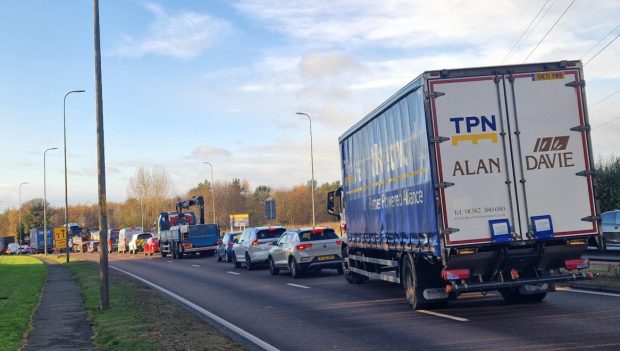Significant issues with Scotland’s City Region Deals must be addressed, according to a Holyrood report.
There was some “scepticism about what is being promised” particularly when it came to jobs, according to the local government and communities committee’s Deal or No Deal investigation.
While MSPs said there was “much to welcome”, there were issues which had to be tackled “as a matter of urgency”.
Of concern was the “confused and cluttered” priorities of the UK and Scottish Governments and local authorities which run the risk of cutting the impact of what could be achieved.
There are also fears that more rural and remote areas and towns not covered by Deals could miss out.
The report called for engagement with local communities and businesses in a meaningful way, rather than telling them after decisions had been made.
Committee convener Bob Doris said while a £3.3 billion investment to create new jobs and build thriving areas around cities, some of which are in the most impoverished and deprived areas of Scotland, was welcome it was clear there were “significant issues” which had to be addressed.
“That’s why we strongly recommend that all governments — national and local — work together and agree to a single focus, as a key priority should be maximising the benefits for local communities.”
He added: “There is also a risk that some parts of Scotland could miss out or lose out on the benefits that these projects may bring, and that other initiatives are treated as the poor cousin in comparison.
“In order for City Region Deals to be a success right across Scotland, we need clarity on when this initiative will be extended to all.
“As these Deals are in the early years of a 10-20 year programme of investment, our committee will be keeping a close eye to check whether these improvements have been made and whether further action is required,” he said.
A spokesperson for the Tay Cities Deal said: “Throughout the bid process we have been keen to listen to other people’s experiences of bidding for and implementing their city deals.
“We will continue to listen, learn and seek to implement best practice at every opportunity.”
Fife Council co-leader David Ross said: “I would agree that there is much to welcome in the city deal approach but that it has its weak spots as well.
“The report rightly identifies the complexities involved in bringing together the different priorities of the two governments and the various local authorities involved in each deal.”
He was pleased that the report highlighted Fife’s disappointment that Levenmouth rail link was not funded through the Edinburgh and South East Scotland City Region Deal.
Meanwhile, a UK Government spokesman said they welcomed the scrutiny and was committed to delivering the deals for Scotland’s cities and would continue to work with the Scottish Government and local partners as further proposals develop.
What has been agreed thus far?
There are now four City Region Deals in Scotland either at the delivery stage or having reached outline approval.
The current deals are focused on the cities of Glasgow (with £1.13 billion of public investment), Edinburgh (£1.1b), Aberdeen (£826 million) and Inverness (£315m), and their surrounding regions.
Two further deals for the cities of Stirling and Dundee, plus the wider areas in the central region and in Tayside, are being discussed.
Economy Secretary Keith Brown said the Scottish Government, which has committed more than £1 billion to the initiative, would continue to support the agreed deals in Glasgow, Inverness, Aberdeen and Edinburgh.
“We remain committed to securing city region deals for Stirling and Clackmannanshire and for the Tay Cities, as well as delivering regional deals for Ayrshire and for the Borderlands,” he added.
Overall, 83% — 4.5 million people — of Scotland’s population live in the areas that are covered by existing or planned City Region Deals.
The deals, which have seen a £3.3 billion investment in Scotland so far, were first introduced by the UK Government in England a way of encouraging local economic growth and moving economic decision-making away from central government.
They were extended to Scotland in 2014 with the aim of boosting jobs and growing regional economies.
But Mr Brown said city region deals were only one economic lever.
“We are focused on improving the economic prospects of every region in Scotland and will work to ensure that all areas benefit from regional economic partnerships, which provide opportunities for local communities and businesses to engage in regional economic planning and development,” he added.
He pledged to consider the report’s recommendations thoroughly.










